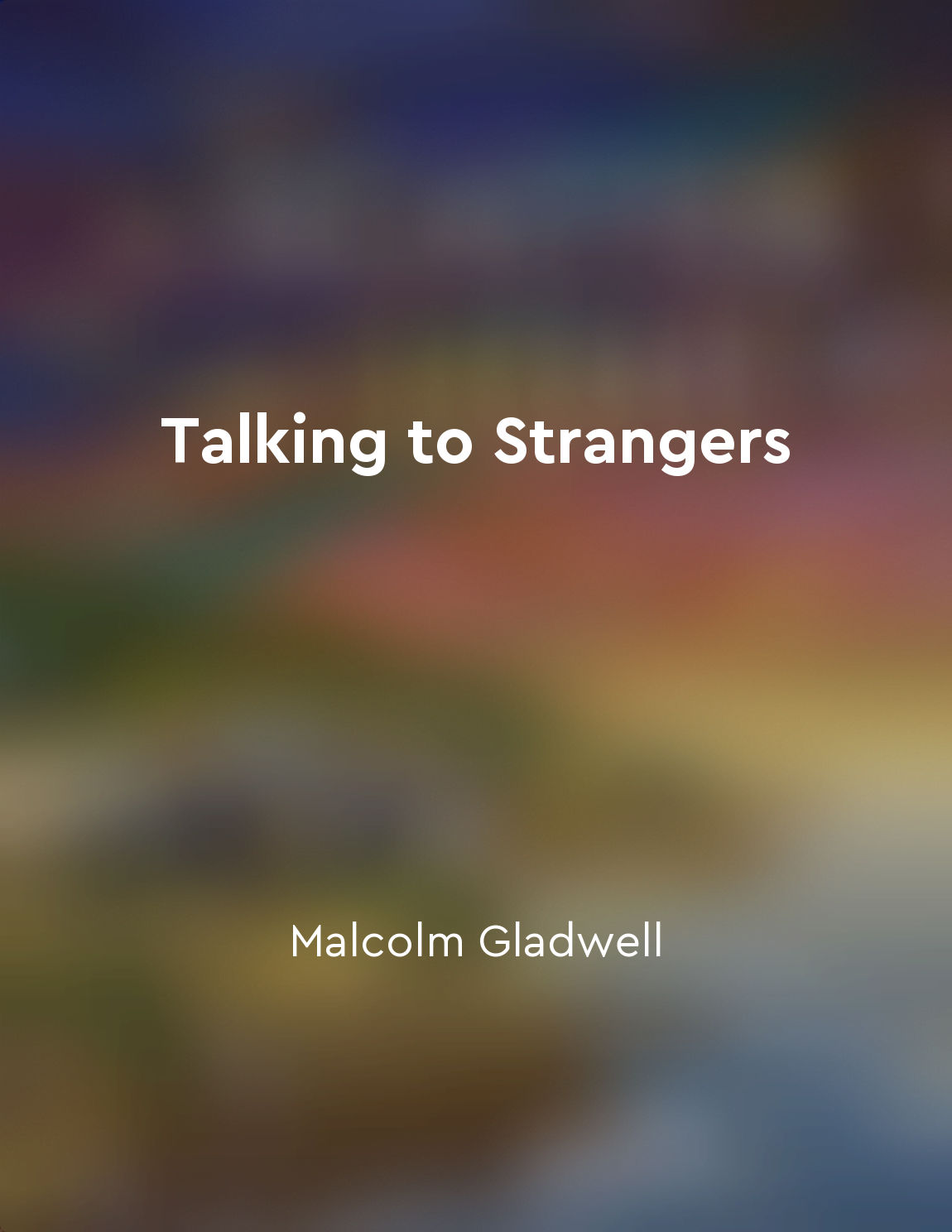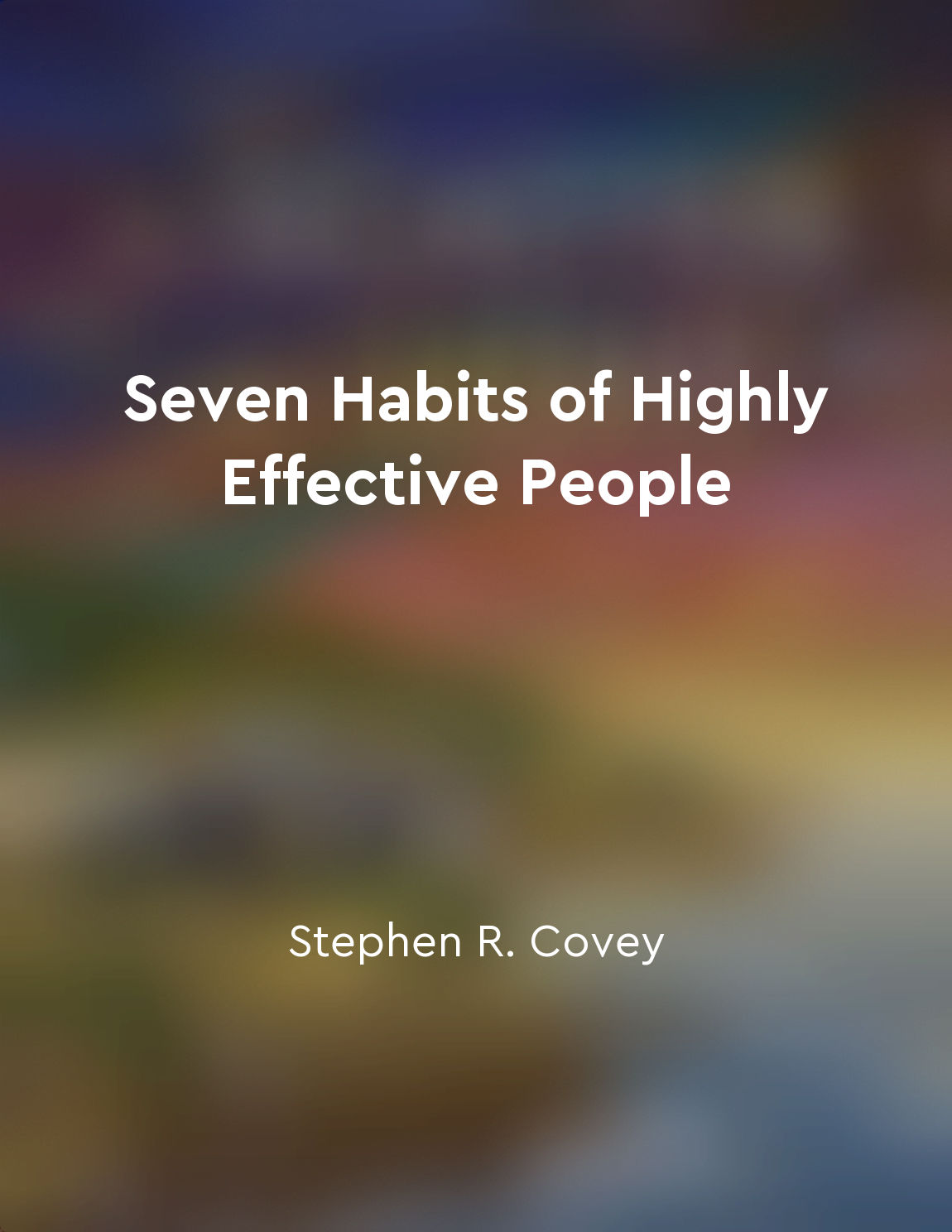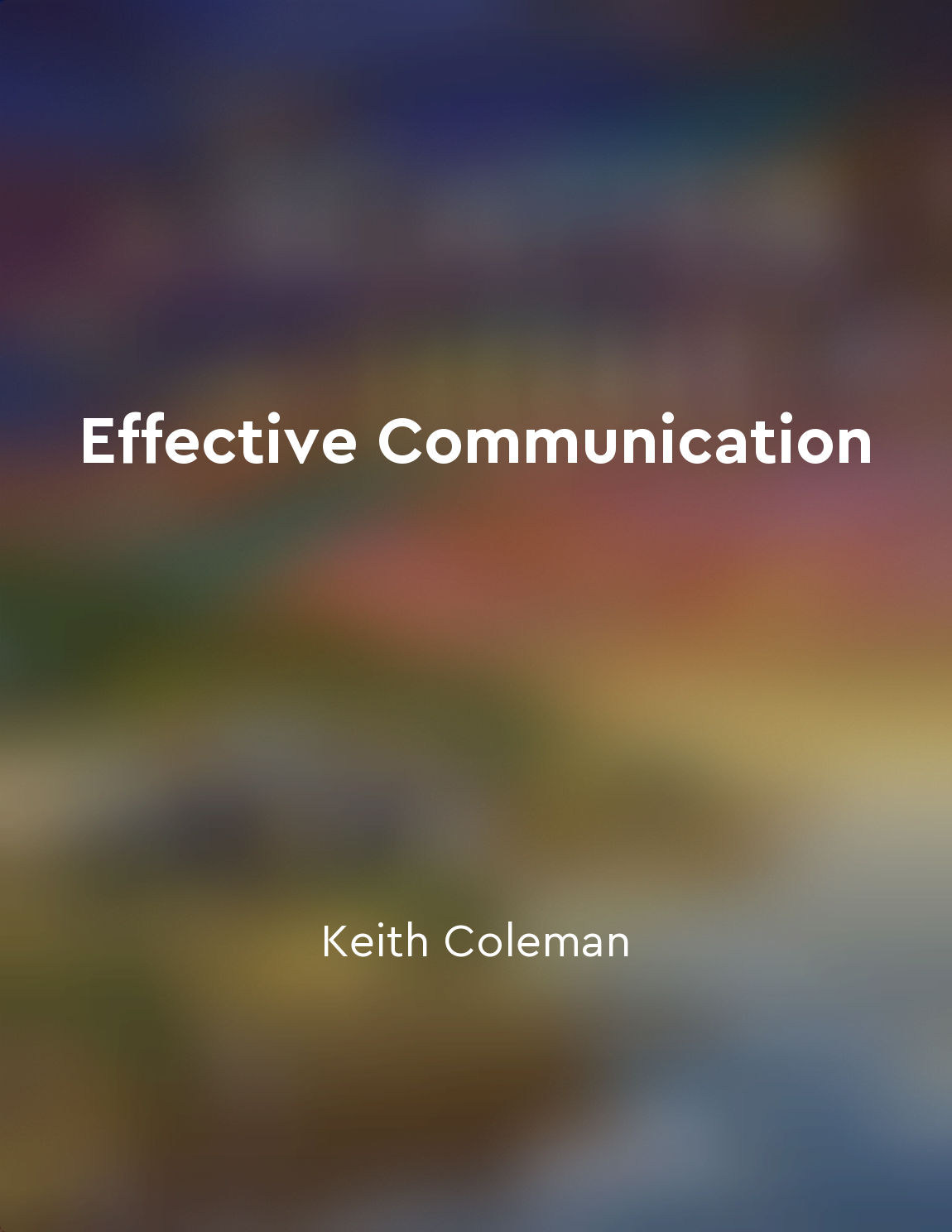Audio available in app
Avoid making assumptions or jumping to conclusions from "summary" of Crucial Conversations by Kerry Patterson,Joseph Grenny,Ron McMillan,Al Switzler
When engaging in crucial conversations, it is essential to resist the urge to jump to conclusions or make assumptions. Assuming we know the thoughts, feelings, or intentions of others can lead us down a path of misunderstanding and conflict. Instead, it is crucial to approach conversations with an open mind and a willingness to seek clarity. One common pitfall in communication is the tendency to fill in the gaps in our understanding with our own assumptions. This can happen when we misinterpret nonverbal cues or make assumptions based on past experiences. However, these assumptions are often inaccurate and can lead to miscommunication and conflict. To avoid making assumptions, it is important to ask questions and seek clarification when needed. Rather than jumping to conclusions, take the time to gather all the relevant information before forming an opinion. This can help prevent misunderstandings and ensure that all parties are on the same page. When engaging in crucial conversations, it is also important to be aware of our own biases and preconceived notions. These can cloud our judgment and prevent us from seeing the situation clearly. By being mindful of our own assumptions, we can approach conversations with a more open and objective mindset.- Avoiding assumptions and jumping to conclusions is essential for effective communication. By approaching conversations with an open mind, asking questions, and seeking clarification, we can prevent misunderstandings and conflicts from arising. It is important to be aware of our own biases and preconceived notions and strive to see the situation from all perspectives. This approach can help foster understanding, empathy, and collaboration in crucial conversations.
Similar Posts
Context shapes communication
The way we perceive and interpret communication is heavily influenced by the context in which it occurs. Context includes the e...

We struggle to detect deception in strangers
The problem is that we think we can easily spot a lie. We believe that liars give themselves away with obvious, uncontrollable ...

Being mindful of body language improves communication
Understanding body language is essential for effective communication. It is a silent form of communication that can convey emot...
Be proactive and take control of your life
Being proactive means more than taking initiative. It means that as human beings, we are responsible for our own lives. Our beh...

Practice empathy in communication
Empathy in communication is a key principle in building strong relationships with others. It involves putting yourself in someo...
Seek common ground with others to build rapport
Building rapport with others is crucial for successful communication and relationships. One effective way to do this is by find...

Refrain from assuming ill intentions when faced with conflicts in communication
When navigating conflicts in communication, it's crucial to resist the temptation of assuming malicious intent on the other per...
Value the importance of listening in building strong relationships
The value of listening cannot be overstated when it comes to building strong relationships. When we truly listen to others, we ...

Nonverbal communication can be powerful
Nonverbal communication can be a potent force in human interaction. It has the ability to convey emotions, intentions, and atti...

Ambiguity can cloud our judgment of strangers
Ambiguity can be a powerful force in shaping our perceptions of others. When we encounter someone whose intentions or motivatio...

